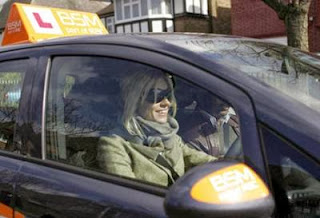 Driving lessons aren’t cheap, but they are a necessary expense. Studies show that you are much more likely to pass your driving test if you are taught by a trained professional, rather than a member of your family or a friend. Since you are going to be spending your hard-earned money on lessons, it makes sense to try to get the best out of them, which will help you to pass your test sooner and cost you less in the long run.
Driving lessons aren’t cheap, but they are a necessary expense. Studies show that you are much more likely to pass your driving test if you are taught by a trained professional, rather than a member of your family or a friend. Since you are going to be spending your hard-earned money on lessons, it makes sense to try to get the best out of them, which will help you to pass your test sooner and cost you less in the long run.
Timing is crucial
There are a few aspects of timing to consider. First of all, try to pick a time that suits you. If you’re not a ‘morning person’, don’t arrange a lesson to take place before you start college or work because you won’t be able to concentrate properly. Most instructors are happy to pick you up from a location other than your home, as long as you have arranged this beforehand, so you could be picked up from work and have an early-evening lesson, as long as you know you won’t be too tired. Secondly, you must be ready when your instructor arrives. If you wait until you see the car outside before you start rushing around, looking for glasses, flat shoes or a jacket, you will only be wasting your own time because the lesson will have to finish on schedule even if it didn’t start that way. Finally, if you have one lesson each week with no driving in between, it will take longer to reach test standard. If you can afford to, consider having two lessons per week or one every five days; this could save you money in the long run.
Be prepared
As well as being ready when the instructor arrives, you should be in the right frame of mind at the start of your lesson. One way to do this is to combine your theory-test study with your preparation for driving. If you spend the fifteen minutes before your lesson time reading your theory book or The Highway Code, you can start to put theory into practice during the lesson. Furthermore, you should try to eliminate barriers to concentration; don’t drive when you’re hungry, thirsty or tired. Some people take a bottle of water with them and have a sip when they are parked, listening to an instruction. Another good tip is to try to bring to mind anything you did on your last lesson. If your instructor gave you corrections, they will watch to see if you implement them.
Be proactive
A lesson is about building on what you know and the best ways to do that are by listening properly, following instructions to the best of your ability and asking questions if you are unsure about anything. No good instructor will have a problem with you asking lots of questions; that’s how you learn and they want you to do well. If you have the opportunity to do some driving in between lessons, without putting too much pressure on yourself, you should do it. Extra driving is like revision and is likely to help you to retain the information from your lesson. Just be sure to get provisional insurance, since you don’t want to lose your licence and accumulate points for your next one.
Learning to drive is like learning anything else. A good teacher is important, but not as important as the effort and attitude of the pupil. The more effort you put in and the better your attitude, the sooner you will be able to rip up those L-plates.

